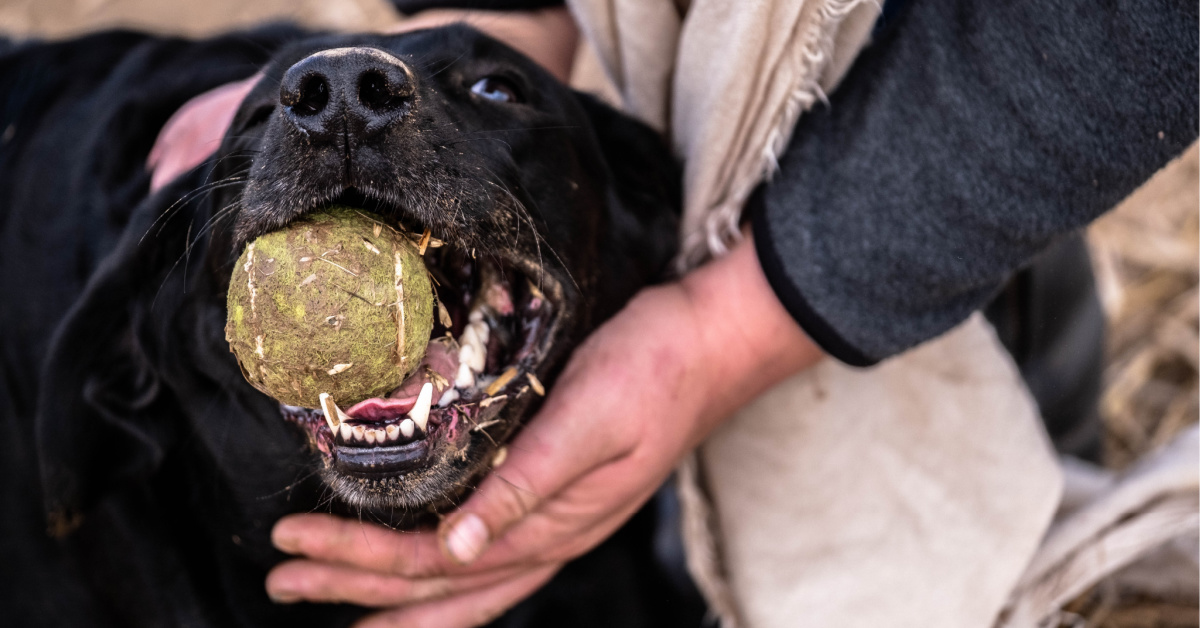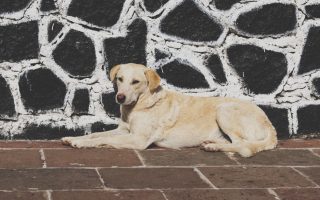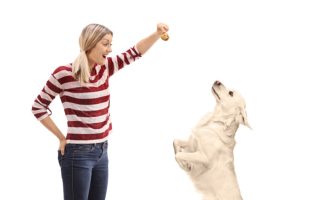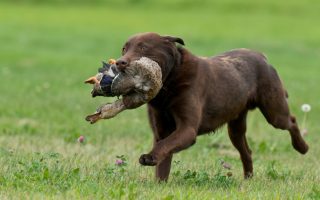Labrador Retriever puppies are playful, but sometimes, they can get carried away and bite you and your stuff. This may lead you to search for ways to help you train your Lab puppy not to bite.
In this article, we are going to take a look at what you can do to teach your Labrador pup to stop biting.
Why does my Lab puppy bite?
If your puppy bites, and they look scared, it may be because they feel threatened, want to protect what is theirs, are frustrated, or lack exercise. It may also just be their way of showing affection, that they want to play, or that they feel bored.
However, a light nip can quickly get annoying―and even painful―if you do not stop it.
Can the biting be even worse?
Unfortunately, yes. Three things can make your Lab puppy tug even harder on what they are already biting on: attention, excitement, and having poor bite inhibition.
Labrador pups love attention. So, when you give it to them while they are biting you, it will reinforce their biting behavior.
Lab puppies also tend to bite more when they are feeling excited. Things like rough physical play, chasing them, and noisy behavior can make them bubble up with excitement.
On the other hand, when your Labrador Retriever puppy cannot help but cause hurt when they bite hard. They may have a hard time controlling the amount of force they apply in their bite.
Could it be that my Lab puppy bites so much because they are teething?
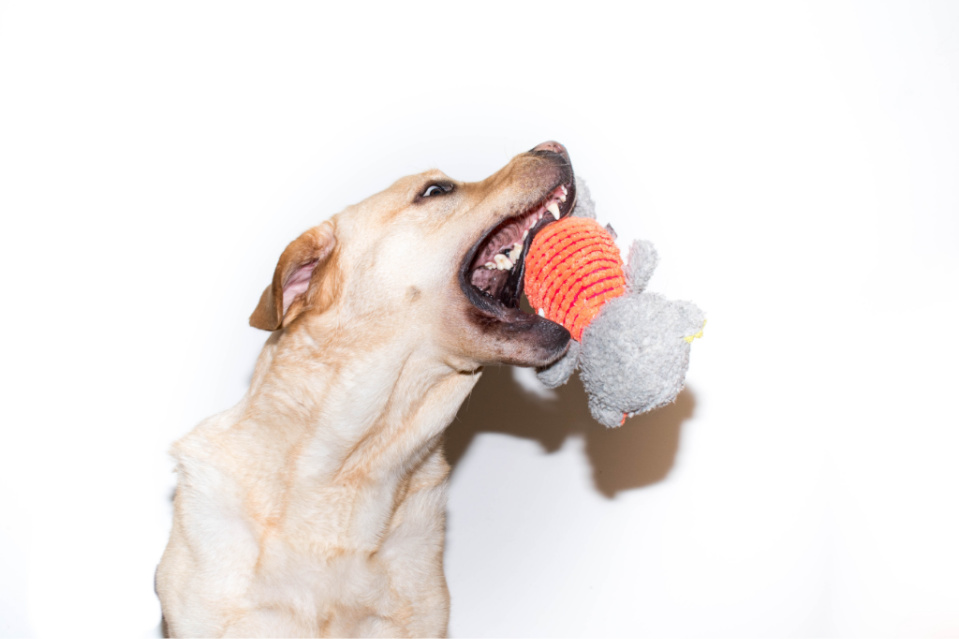
It is possible that Labrador Retriever puppies may nip or chew to relieve the discomfort they feel as a result of teething. However, this is not a major reason.
Although most pet owners associate biting with teething, the majority of dog biting problems is actually simply linked to play.
But, you may consider giving your Labrador Retriever pup lots of somewhat soft toys to help them soothe their gums in case they’re teething.
Learn more about what you need to know about Labrador teething here.
How you can train your Lab puppy not to bite
So, what should you do in case your Labrador Retriever puppy bites you?
First, move your hand a little towards the pup. If he doesn’t make a move towards your hand, say “yes” and put a treat in front of him.
Repeat this exercise until you are confident that your Labrador has learned not to bite as much and as hard as they used to.
Other things you can do to train your Lab puppy not to bite
1. Give them something to chew.
One big reason why your Lab may love to chew things is because they do not know what else they can chew.
You may have not taught them what they can and cannot bite. So you cannot expect them to know on their own.
To deal with the constant nipping and biting, you need to give them plenty of toys that they can chew. You can also get tugger toys so your puppy can bite while you play with them.
Just make sure that the toy can fit in their mouth without being too small. You do not want them to accidentally choke on their toys.
We also recommend that you avoid plush toys. Labradors are strong dogs (even when they are puppies), so they can easily tear through soft toys and eat these toys.
2. Reward appropriately.
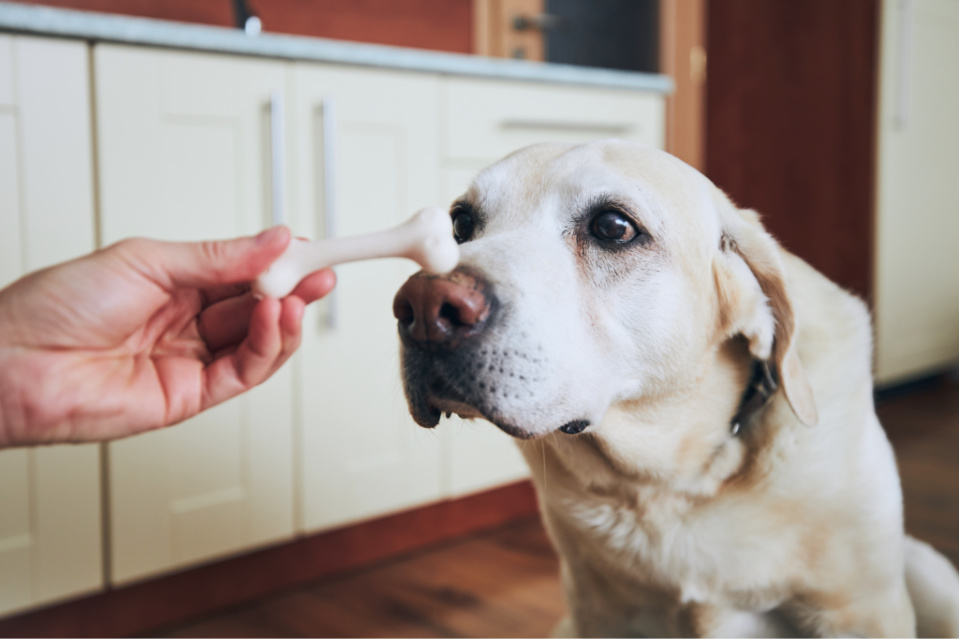
If you use treats to distract your dog from biting things they should not bite, you may unknowingly be encouraging their biting habit. Therefore, you need to learn how to reward them appropriately.
3. Redirect them.
When you make your puppy stop biting something they should not, you need to replace it with something that they can bite. This will help them differentiate the stuff that they can and cannot bite.
Make sure to give them your Labrador puppy new toys every now and then, though, because they can get bored of playing with the same toys.
4. Fake feeling pain.
If your puppy bites you, it may not always hurt. However, if your Lab thinks that it is okay to continue biting when they are an adult, it can be much more painful.
Labradors are loving and empathetic dogs, so you can help them stop biting you by showing them it hurts.
For example, if your puppy nips you, you can say ouch loudly or pretend to cry like a puppy (even if it does not hurt).
While you may look silly while you do this, it can help your Lab puppy learn that their bites can hurt people. Most puppies will show immediate concern when you cry and look apologetic.
Many puppies will lick the spot that they bit after you show them it was painful and try to be more gentle with you afterwards. You can try this method a few times to remind them that bites can hurt.
5. Avoid rough play.
You may love roughhousing with your dog, but what you may not realize is that you are encouraging them to bite.
Rough play can get them overly excited, and they may not realize what they are doing, which can lead to biting.
6. Have them go through lots of exercise.
Labs get bored easily and have tons of energy. If they do not use that energy, they will find other ways to get rid of it.
If your puppy is not used to other people and dogs, they may be scared and may bite others out of fear.
So, if you want to train your Lab puppy not to bite, it is important that you make sure that your Lab socializes with other people and dogs. Puppyhood is the best time for socialization, so you need to be certain that they get lots of it.
You can slowly encourage your Lab puppy to meet other people. Make sure that these new people do not force your dog to go near them.
When you introduce new dogs to your Lab, it would be best to do it in a public setting. Otherwise, if you introduce an unfamiliar dog to them in their home, they may get territorial and aggressive.
8. Have them go through obedience training.
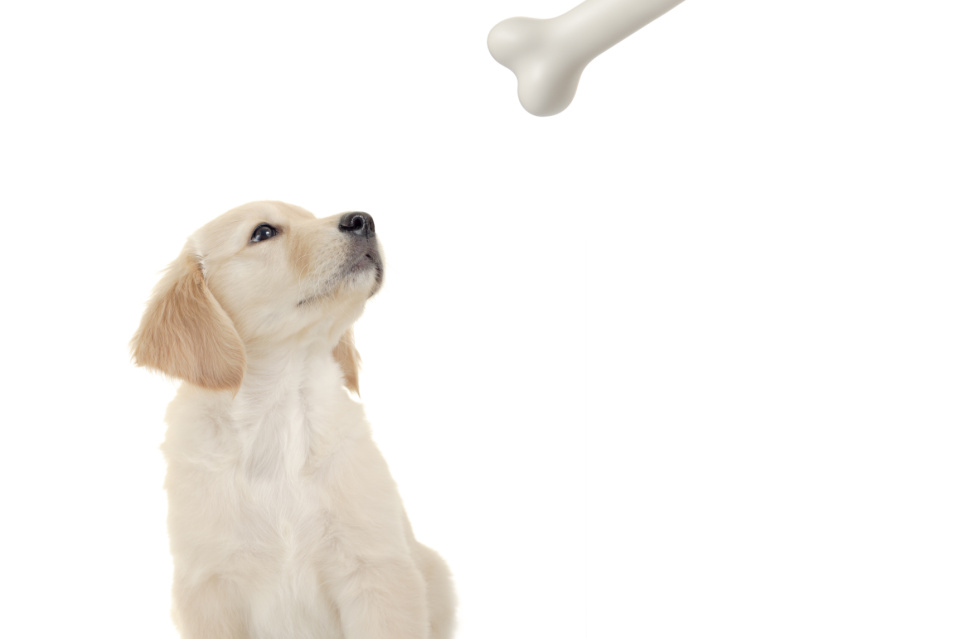
Obedience training is crucial for every dog. They need to learn how to listen to you, even when there are distractions.
You need to be consistent with teaching them how to listen to you, including when you train your Lab puppy not to bite things or other people.
If your puppy’s main problem is biting, you can focus on teaching them “stop” and “drop it” until they do it without hesitation. Make sure to occasionally say the commands as needed so they will not forget.
To sum it up
It is in a dog’s nature to bite, especially when they are excited, scared, or are feeling protective.
However, you can follow the tips above to help you train your Lab puppy not to bite.

